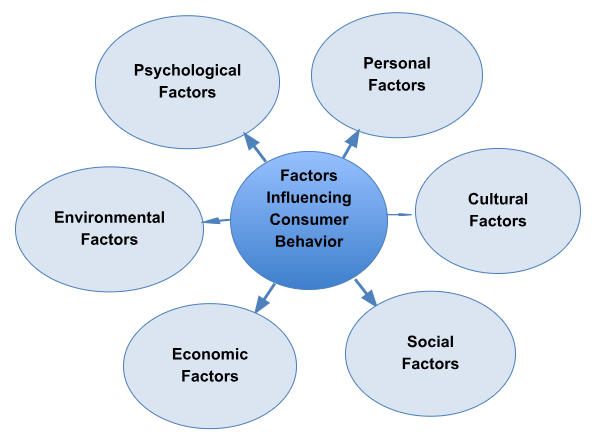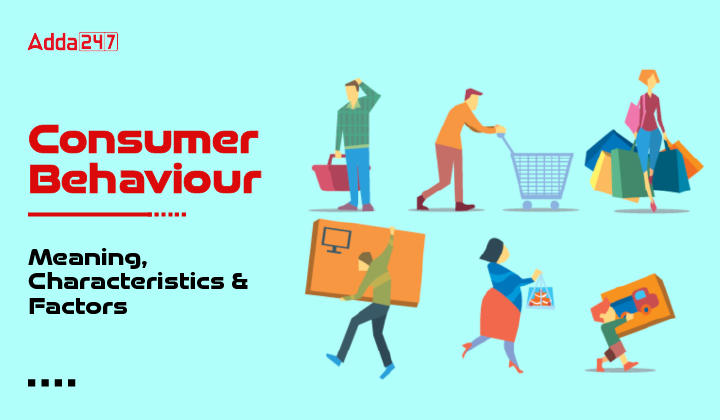Table of Contents
Consumer behavior refers to the study of how individuals, groups, or organizations make decisions regarding the purchase, use, and disposal of products, services, or ideas in the marketplace. Understanding consumer behaviour is crucial for businesses and marketers as it helps them tailor their products, marketing strategies, and customer experiences to meet the needs, preferences, and motivations of their target audience, ultimately driving sales and building brand loyalty. The concept of consumer behaviour is explicitly explained in the following article.
Consumer Behaviour Overview
Consumer Behavior is all about understanding why and when people buy or don’t buy products, as well as how and where they make these decisions. It’s basically about getting inside the heads of consumers. This field of study aims to grasp how both individuals and groups make choices when purchasing. It looks at individual consumers, their demographics, and their behaviours to figure out what people want.
Meaning of Consumer Behavior
The field of consumer behaviour is concerned with the studies of how individuals, groups, and organizations select, buy, use, and dispose of goods, services, ideas, or experiences to satisfy their needs and desires. Consumer behaviour encompasses several key terms that help clarify its scope:
- Consumer: According to the International Dictionary of Management, a consumer is the one who purchases goods and services for immediate use or consumption.
- Buyer: The buyer is the one who purchases goods either to resell for use in production or for someone else’s use.
- Customer: Customers are individuals who purchase goods for their use or the use of others, or they may be regular customers of a particular product or shop.
- Institutional Buyer: These buyers can be government institutions or private organizations.
Characteristics of Consumer Behavior
Understanding consumer behaviour involves recognizing several essential characteristics:
- It’s a process which involves the decisions of what to buy when to buy, how to buy, where to buy, and how much to buy.
- Consumer behaviour comprises both the mental and physical activities of consumers.
- It is a highly complex and dynamic process.
- Individual buying behaviour is influenced by internal factors such as needs, wants, attitudes, and motives, as well as external factors like social groups, culture, status, and environmental factors.
- Consumer behavior starts before the purchase decision and it even continues after the purchase is made.
Importance of Studying Consumer Behavior
The study of consumer behaviour holds significant importance for businesses and the market as a whole. Its importance includes.
- Developing better strategies for increasing profits.
- Considering customer health, hygiene, and fitness when offering products.
- Understanding buying decisions and consumption patterns.
- Adapting to consistent changes in consumer tastes and preferences.
- Formulating pricing policies based on consumer behaviour.
- Mitigating the risk of future market failures.
Factors Influencing Consumer Behavior
Consumer behaviour is influenced by various factors, including:

Psychological Factors
- Consumer Needs and Motivation: This factor explores the basic human needs that drive buying decisions, as outlined in Maslow’s hierarchy of needs.
- Reference Groups: People are influenced by the groups they belong to or admire, impacting their choices.
- Roles and Status: Social roles and positions can affect what individuals purchase.
- Family: Family dynamics and roles play a crucial role in consumer choices.
- Perception: How consumers perceive products and brands can heavily influence their decisions.
Personal Factors
- Age: Different age groups have varying preferences and buying patterns.
- Stages in the Life Cycle: Life events and stages, such as getting married or having children, impact consumer behaviour.
- Learning: Consumer behaviour can change as people learn more about products or services.
- Beliefs and Attitudes: Personal beliefs and attitudes shape consumer choices.
Cultural Factors
- Culture: Cultural values and norms have a significant influence on what people buy.
- Subculture: Smaller cultural groups within a society can have distinct preferences.
- Social Class: Social status and class affect consumer decisions.
Social Factors
- Status: One’s social status or position can impact what they purchase.
- Lifestyle: A person’s way of living influences their buying choices.
- Occupation and Economic Status: Employment and financial situation play a role in consumer behaviour.
- Personality: Individual personality traits can affect preferences and decisions.
Economic Factors
- Personal Income: The amount of money an individual earns affects their purchasing power.
- Family Income: Household income impacts overall spending.
- Income Expectations: What people anticipate in terms of future income can influence current buying decisions.
- Savings: The level of savings an individual has can affect their willingness to spend.
- Liquidity Position: Access to liquid assets, like cash or credit, can influence spending habits.
- Consumer Credit: Availability of credit can impact purchasing decisions.
Environmental Factors
- Political Situation: The political climate can influence consumer confidence and behaviour.
- Legal Forces: Laws and regulations, such as consumer protection laws, affect the market.
- Technological Advancements: Technological innovations shape consumer preferences and choices.
- Ethical Considerations: Consumer decisions may be influenced by ethical concerns related to products or brands.
Conclusion
In conclusion, the study of consumer behaviour is essential for businesses looking to succeed in today’s dynamic marketplace. By gaining insights into why consumers make specific choices, companies can develop more effective strategies to enhance customer satisfaction and boost profits.
Download UGC NET Commerce Study Notes PDF
The direct link to download UGC NET Commerce Study Notes PDF has been given below. Here we are going to download the Consumer Behaviour: Meaning, Characteristics & Factors Study PDF through below link
Download Consumer Behaviour Study Notes PDF




 UGC NET Commerce Syllabus 2025 PDF Downl...
UGC NET Commerce Syllabus 2025 PDF Downl...
 UGC NET Teaching Aptitude Questions Answ...
UGC NET Teaching Aptitude Questions Answ...
 UGC NET Philosophy Syllabus 2025 PDF Dow...
UGC NET Philosophy Syllabus 2025 PDF Dow...




